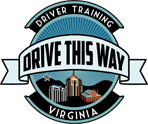What to Do if You’re Ever in a Collision
 According to the National Highway Traffic Safety Administration, driving is one of the more risky activities people will take part in during their lives. Of course, we all do our best to drive safely and responsibly, but in the event of the unexpected, it’s good to be prepared. Collisions, crashes, accidents – they can be very scary. But, just in case you end up in one, here are some tips that will help you get through with as little stress and confusion as possible:
According to the National Highway Traffic Safety Administration, driving is one of the more risky activities people will take part in during their lives. Of course, we all do our best to drive safely and responsibly, but in the event of the unexpected, it’s good to be prepared. Collisions, crashes, accidents – they can be very scary. But, just in case you end up in one, here are some tips that will help you get through with as little stress and confusion as possible:
- Stay calm – After an accident, it’s normal to feel all kinds of different emotions. You may feel shocked, nervous, angry, guilty or scared, but it’s important to regain composure, take some deep breaths and stay calm. You’ll need this clarity so that you can process and handle the situation at hand. Assess the accident and determine its seriousness.
- Keep everyone safe – If the accident is more serious, don’t panic and use good judgement to keep yourself and everyone else involved safe. If you can’t move or it’s not safe to move, sit tight. If you’re in the middle of the road, turn your hazard lights on. If you are able, call 911, and wait for help to arrive. If the accident is minor and it’s safe, turn on your hazard lights, and move your vehicle off to the side of the road (if it’s legal in your state).
- Check injuries – Check on everyone involved in the accident, including yourself. Assess injuries, but be cautious, as not all injuries can be seen. Call 911.
- Report the accident – When you call, be prepared to report some information. Give your name and phone number in case you get disconnected or more information is needed later. Give as much information about the accident as possible including whether or not there are injuries, you are blocking traffic, there’s a fire, etc. Tell them exactly where you are including the city, road name, mile marker, traffic signs, direction you were traveling, and anything else that might help emergency responders locate the scene more quickly.
- Stay on the line – Don’t hang up on the dispatcher until they tell you to. Depending on the severity of the situation, and whether or not you’re requesting someone to just come out and mediate, police officers may or may not be sent to the scene. If police aren’t sent, make sure that you file an incident report at the police station.
- Exchange information – Once you determine that everyone is alright, exchange information. This should include names, driver’s license numbers, addresses, phone numbers, insurance companies, policy numbers and license plate numbers.
- Take notes – If the accident is minor, take descriptive notes and pictures detailing the scene, what happened, the date, time and any weather conditions. Write down vehicle descriptions including the year, make, model and color. If you’re taking pictures, include road signs, damage, the roadway and the direction you were both driving. If possible, draw a diagram of the crash site as well. This will all help insurance companies determine who was at fault of the accident.
Familiarize yourself with these tips and processes and you will always feel more prepared as you head out on the road. Just remember, the most important thing you can do after an accident is keep your cool so that you can focus on the situation and rectify it as quickly, safely and precisely as possible.
